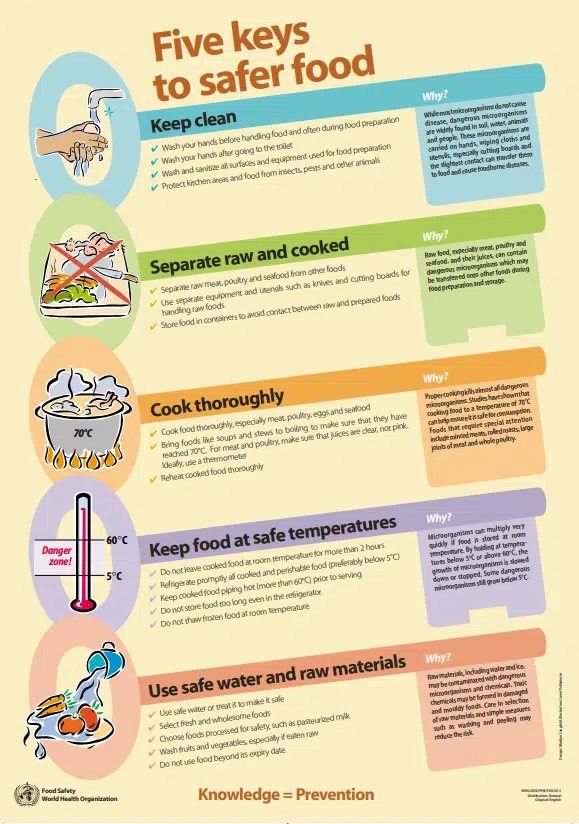Geneva, Switzerland – Every year 600 million cases of food borne illnesses are reported. In 2010, 420 000 people died due to such diseases as salmonella and E.coli infection, a third of them children under five years of age. It is estimated that this figure is increasing year after year, but it is difficult to get a clear picture of the real impact food borne diseases are having around the world.
impact food borne diseases are having around the world.
To address this problem the World Health Organization (WHO) has developed a handbook to help countries measure their food borne disease burden and identify food safety system needs and data gaps so they can strengthen national infrastructure and better protect people’s health.
“Food should sustain and support human health, not harm it,” said WHO Director-General Dr Tedros Adhanom Ghebreyesus. “WHO’s new handbook will help countries to collect and analyze data to inform sustained investments in food safety. The COVID-19 pandemic has demonstrated the intimate links between the health of humans, animals and the planet that sustains us. WHO will continue to work with partners with a One Health approach to keep communities safe from food borne disease.”
In 2020, the World Health Assembly adopted a new resolution mandating WHO to monitor the global burden of food borne and zoonotic diseases at national, regional and international levels and to report on the global burden of food borne diseases with up-to-date estimates of global food borne disease incidence, mortality and disease burden by 2025.
The Organization is reconvening its food borne disease burden epidemiology reference group (WHO FERG) with 26 new international experts. The group’s main functions are to advise WHO on methodologies to estimate the global burden of food borne diseases, to monitor global food safety indicators and measure progress being made in food safety.
There are over 250 different food hazards that cause various health issues such as acute or long-term illness or even death. In 2015, the previous FERG helped WHO publish a historic report that revealed, for the first time ever, the global public health burden of food borne diseases based on 31 food borne hazards. The report showcased the massive health impact of unsafe food and highlighted the need for strong and sustained action.
You can find the handbook here -> Estimating the burden of foodborne diseases: A practical handbook for countries



Comments